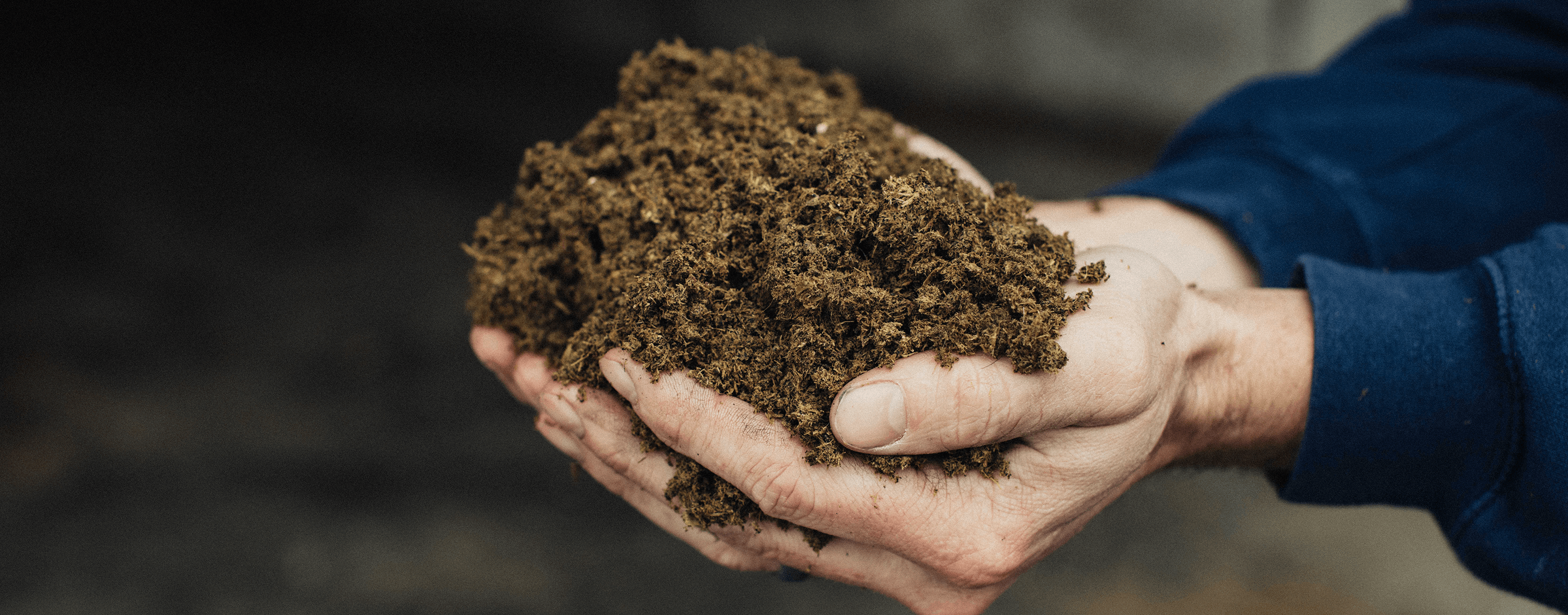Building on barn-to-biogas: Our successful farmer-led model for cutting methane emissions continues to grow
Nine dairy members join CalBio’s latest expansion

In 2018, Land O’Lakes, Inc. and California Bioenergy LLC (CalBio), a leading dairy digester developer, announced a first-of-its-kind collaboration focused on developing the end-to-end sustainability infrastructure that farmers needed to generate renewable energy from farm waste, or “barn-to-biogas.”
Over the past three years, CalBio has grown this project to include new farmer and private sector partners, including exciting new growth in just the first few months of 2021. CalBio has recently announced that is has brought online two new dairy biomethane clusters, the South Tulare and North Visalia clusters, to bring more sustainability technology and opportunity to dairy farmers across California. CalBio also has other new cluster projects in California and across the country. Nine Land O’Lakes member dairy farms have joined the effort to help reduce methane emissions and produce a total of approximately 8 million diesel gallon equivalents of compressed RNG for the state of California.
“Land O’Lakes member-owners have long paid thoughtful attention to stewarding the land for their communities and future generations, so it’s no surprise that nine of our members have joined in the latest CalBio expansion to reduce their environmental footprints in an economically viable manner,” said Pete Kappelman, Land O’Lakes Senior Vice President of Member & Government Relations. “In alignment with our Dairy 2025 Commitment, our member-owners are continually working to stay on the cutting-edge of sustainable farming.”
CalBio worked with Land O’Lakes and its dairies to help finance on-farm methane digesters to generate renewable compressed natural gas (“R-CNG”) fuel. The work has helped to eliminate the barriers to adopting on-farm methane digesters, unlocked new revenue streams for farmers, and helped them meet California state standards for a 40 percent reduction in dairy and livestock manure-related methane emissions from 2013 levels by 2030.
That’s why, since our initial collaboration three years ago, Land O’Lakes, Truterra and CalBio have worked together to advocate for the expansion of methane digesters in California and nationwide. The State of California has been a leader in grant funding. The California Department of Food and Agriculture provided grants towards the digesters, as part of the California Climate Investments program. Through SB 1383 the California Public Utilities provided grant funding to help expand the pipelines and interconnections needed for these two cluster. Farm Credit West along with other participating Farm Credit System institutions have joined the collaboration and are providing loans to the projects.
First, California. Next, Nationwide.
We are passionate in our belief that farmers must be part of the climate change solution and we can work with key partners to create an innovative farmer-led model for manure to electricity technology that could help shape nationwide solutions to agricultural methane emissions reduction.
In April 2021, Jason Weller, Vice President of Truterra, testified in front of the Senate Agriculture Appropriations Subcommittee, speaking at length about the collaboration between Truterra and CalBio to provide end-to-end sustainability infrastructure and bringing further awareness to the ability of methane digester initiatives to create new revenue streams for farmers and cut emissions.
“As one of the nation’s largest agricultural cooperatives, Land O’Lakes is uniquely positioned to tap into the potential power of California dairy farmers to generate renewable energy from farm waste,” Weller said.
Earlier this year, Land O’Lakes also introduced its Dairy 2025 Commitment, and has started collecting information that will help guide measurable improvements. In addition to this commitment, we are currently working on several projects with customers to drive results.
For example, with Bel Brands, we started a project to increase the use of cover crops and other sustainable agricultural practices among our member-owners who ship milk to Bel Brands’ facilities. We are also working with The Hershey Company and The Alliance for the Chesapeake Bay to implement best practices that reduce greenhouse gas emissions and help improve water quality in the Chesapeake Bay and other regional watersheds.
Supporting on-farm sustainability is an important part of helping to mitigate climate change, and we’ll continue to work with partners like this to keep moving forward.